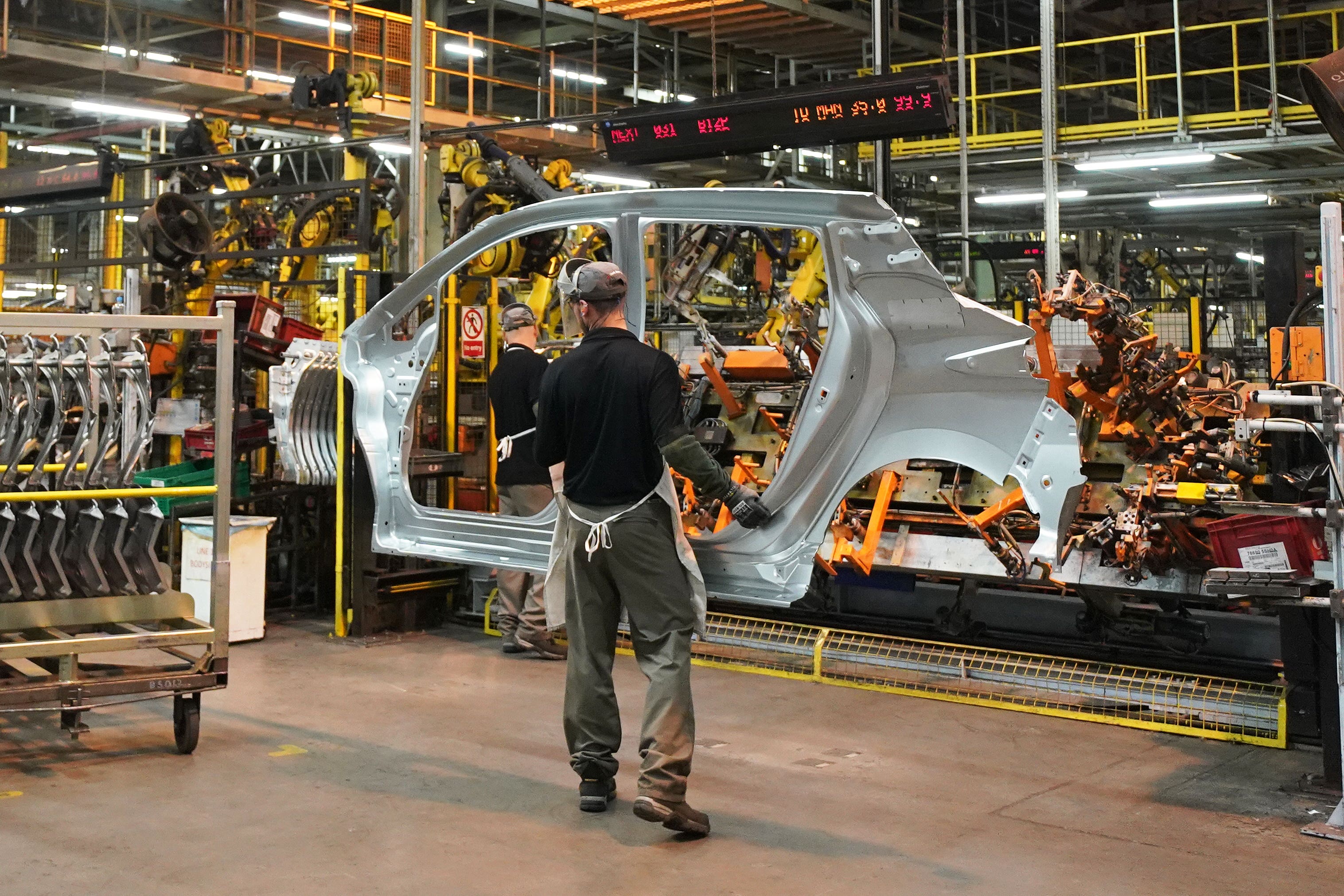Red Sea crisis rocks UK factories as production falls for 12th month in a row
The S&P Global/CIPS UK manufacturing PMI survey, watched closely by the industry, increased to 47.5 in February from a reading of 47 in January.

Your support helps us to tell the story
From reproductive rights to climate change to Big Tech, The Independent is on the ground when the story is developing. Whether it's investigating the financials of Elon Musk's pro-Trump PAC or producing our latest documentary, 'The A Word', which shines a light on the American women fighting for reproductive rights, we know how important it is to parse out the facts from the messaging.
At such a critical moment in US history, we need reporters on the ground. Your donation allows us to keep sending journalists to speak to both sides of the story.
The Independent is trusted by Americans across the entire political spectrum. And unlike many other quality news outlets, we choose not to lock Americans out of our reporting and analysis with paywalls. We believe quality journalism should be available to everyone, paid for by those who can afford it.
Your support makes all the difference.The Red Sea crisis has troubled the waters for UK manufacturers as factory production fell for the 12th month in a row, according to a new survey.
The S&P Global/CIPS UK manufacturing PMI survey, watched closely by the industry, increased to 47.5 in February from a reading of 47 in January.
The score is slightly ahead of previous estimates but remains below the 50 threshold, which indicates that activity is contracting.
Britain’s under-pressure factories felt the impact of disruption in the Red Sea in February, which slowed production and deliveries.
Several manufacturers noted that they faced the difficult choice between accepting delays from rerouted shipping or facing the prospect of paying higher prices to source from closer to home
Since November, Iran-backed Houthi rebels have been repeatedly attacking international container ships going through one of the world’s busiest shipping routes.
The attacks have led many vessels to reroute over safety concerns, lengthening delivery times and pushing up shipping costs.
Manufacturers reported having to find alternative suppliers from more expensive markets closer to home or face delays to deliveries of raw materials, according to the PMI survey.
“Several manufacturers noted that they faced the difficult choice between accepting delays from rerouted shipping or facing the prospect of paying higher prices to source from closer to home,” said Rob Dobson, director at S&P Global Market Intelligence.
Cara Haffey, manufacturing and automotive lead at PwC UK, said: “Manufacturers are continuing to do their best to circumvent these issues, as vendors and suppliers test the agility of their supply chains by sourcing alternate routes.
“However, rerouting supplies, such as around southern Africa, as well as sourcing more local suppliers both carry added cost implications – which will not be welcome news for the sector.”
The disruption adds to already tough conditions for firms which have grappled with weaker levels of demand through the cost-of-living crisis both at home and abroad, and a slow recovery from the effects of the Covid-19 pandemic.
The survey highlighted that manufacturers have continued cutting costs in the more cautious climate, with staffing levels falling for the 17th month in a row reflecting restructuring efforts and redundancies.
Mr Dobson said: “Although the supply impact and effect of prices is muted by standards seen at the height of the pandemic, any upward pressure on inflation will be a concern to policymakers and may add to calls that it is too early to be confident on the timing of interest rate cuts.”
Ms Haffey added that businesses could be looking to the Chancellor’s spring Budget, which will be delivered next week, for “signals of assurance”.
This could come in the form of policy direction to help grow the workforce or reduce trade costs and barriers, she said.